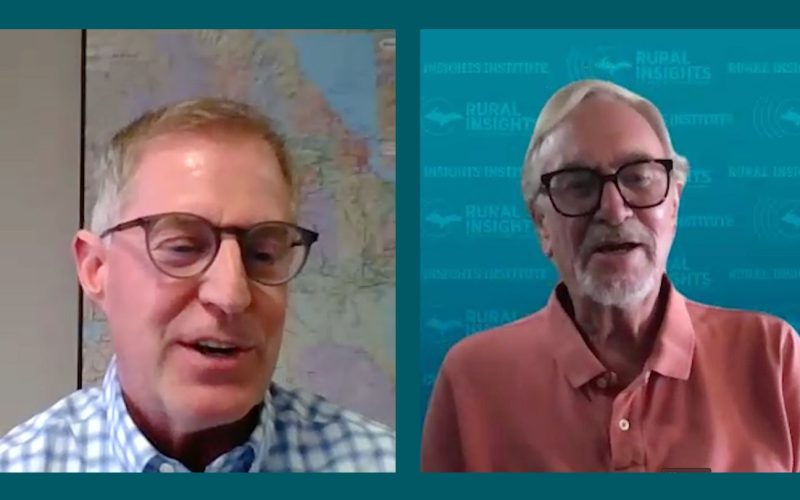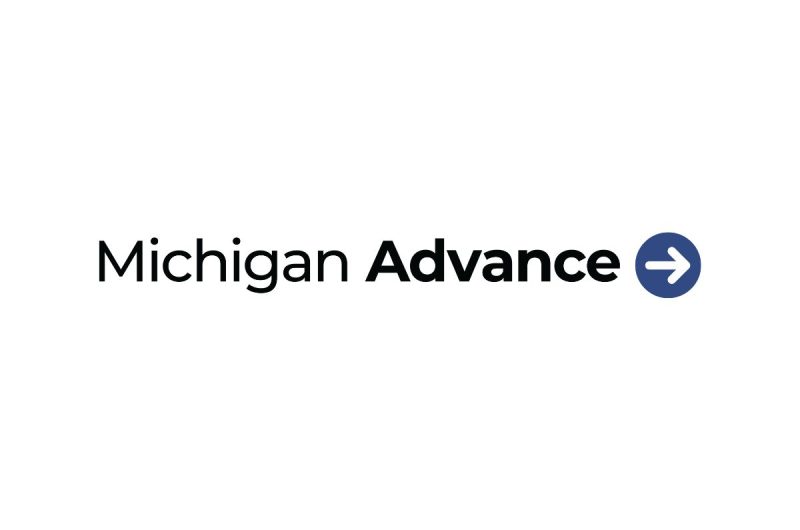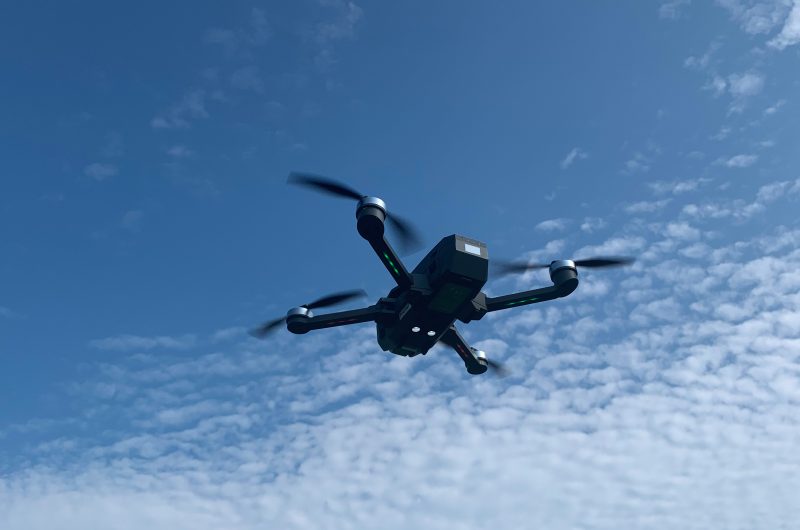Addressing Rural Challenges: A Conversation with Scott Erbisch

In this episode of the Rural Insights Podcast, seasoned public administrator Scott Erbisch joins David Haynes to discuss the unique challenges faced by rural areas in Michigan’s Upper Peninsula.
Topics discussed include air travel, broadband access, road infrastructure, housing affordability, and the impact of state and federal policies on rural communities. Scott sheds light on the complexities of managing rural public services and the ongoing efforts to improve the quality of life in these communities.
Please note: Due to technical difficulties, the first few minutes of our conversation were cut off. We apologize for this issue, and hope you enjoy the episode.
You can read the interview below, or you can also listen here or watch here.
Scott Erbisch: But it’s still a challenge for us and we’ve lost a lot of our ridership. I think going into the, prior to Covid, we had well over 100,000 enplanements. Now we’re in the 80,000’s and we’re seeing our market share shrink as compared to the other UP airports that have essential air service.
So that’s one of the things that comes to mind. I think other things when it comes to state and federal things that I think rural areas really struggle with is I think broadband is one of those that really is important for our rural areas, and I think there’s places in the UP that lack proper broadband, although there are some initiatives right now that’s happening that will help broaden that reach for people.
And then obviously road infrastructure. We’re a large part of the state of Michigan, but we don’t have a lot of the same resources that are available in some of those more urban areas to help with some of these challenges.
David Haynes: Well, as you said, housing availability and costs both from building and for the consumer. Renting or purchasing. We talked about air travel for Marquette is a challenge. Most people that live in rural areas are used to driving a lot to get to their destinations. It’s always been sort of a clashing point about people don’t want to drive all the way to a regional airport of some kind.
In this case, Marquette, that’s still the problem, right? I mean people want a local airport and they get a federal subsidy for that and we don’t. Is there any solution? What’s the solution to that, as you were saying, what could they do besides give you the federal subsidy or give us the county?
Scott Erbisch: Yeah, I think the biggest thing for us is being able to generate more reliable air service through frequency of flights and the destinations changing. I think some of that will really help bring those numbers back up here. In the early to mid 2000s, Marquette’s airport had three airlines at that time.
We had numerous flights we were drawing from across the Upper Peninsula. We had stats because of the way in which we did parking. We tracked everybody for parking because we were one of the few airports that charge for, so we were actually doing mapping on where people were coming from for Sawyer when we had that number of flights during the day and frequency of flights. We had Minneapolis, we had a Lansing connection, we had obviously Detroit, Chicago, but that was a real draw across the Upper Peninsula for that.
And because of those factors, I think if we can get those back that will help bring back and stabilize some of that air service. But to help get that, we might need these incentives to help do that. We’re never going to advocate to get rid of the essential air service program. We are strongly a supporter of the value of those airports to those communities.
So we just need to, I think when we get those things back, more frequency, we get the Minneapolis flight, some of that, I know we’ve been working with Sun Country to get them more regular here. Those things will help bring more awareness at the airport. Those are some of those factors that I think are some of the critical things. We need frequency and some of that expanded service to Minneapolis again.
David Haynes: So those passengers that aren’t flying out of Marquette, are they going to Green Bay? Is that where they’re headed? Or Escanaba, Houghton, where do they go?
Scott Erbisch: I would think when you’re specifically flying, because we have Envoy there, they’re direct to Chicago, so it’d probably be, unless there’s a ticket affordability concern with Envoy here, you’re less likely to go to Houghton because they’re direct. I think to Chicago as well.
It’s when you start getting into the Envoy and you’re trying to head west, then you start looking at more challenges of cost and flight options. So that’s why I hear people are going to those same places. They also go to Iron Mountain, they’ll go to other up airports that have the Delta connections that they need. And right now getting out west and coming up from out west adds a day sometimes.
I can speak to that myself and some of the travel I’ve done to Montana, you have to plan for a day extra in travel, either going there and sometimes coming back due to the flights that we have out of Sawyer. Unless you can get a better connection out of one of the other airports. And that’s what causing people to go to some of those airports. And sometimes it’s really tied to cost.
David Haynes: So do you think the, let’s talk about the state government. Do you think they recognized, while there are many similarities between an urban area and a rural area in terms of issues and problems and costs, but do you think they recognize the uniqueness and the unique problems of rural areas? Or do you think that it’s difficult to communicate that or to make them understand To a legislator from a big urban area like Detroit?
Scott Erbisch: It’s been historic that the UP is kind of not thought of in a lot of these processes, and bringing that awareness to the legislature has been a challenge at times, but we’ve done some of those things where we brought specific issues to their awareness. But overall, it sometimes feels that as from a rural area we’re second thought, secondary thought, unless it might be tied to recreation.
But we do work very closely, for example, on the aviation side and InvestUP and others have also been working on bringing some of these aviation issues to department heads there that can potentially have an impact. And bringing those into some of the key legislators. I think that people often really forget about the challenges we’re facing here in the Upper Peninsula.
I think that’s been historic since I’ve been in local government for these many, many years. And I don’t see that changing quickly. I think some of the things that have been done that really helps bring some awareness, and it’s one of these, the UP 200 sled dog race, it’s a legislative reception and in the last five to eight years you’ve seen significant numbers of other downstate legislators coming to that, getting a feel for the Upper Peninsula or now even going up to the Houghton-Calumet area for similar events.
Those types of things are critical in bringing that awareness to our area, our region, and the challenges that we do face. But it’s an uphill battle.
David Haynes: I want to finally talk a little bit about, I’ve had a lot of people, business people or readers of ours, subscribers, talk to me about the issue of the hotel tax, that the UP had, the very unique compared to the rest of the state, that the money is collected by the hotels and puts into sort of a travel promotion fund, I think is what, if I recall, don’t have my notes in front of me unfortunately, and it was done many, many years ago with the chairman of appropriations from the UP, Dominic Jacobetti, and they have a deal that it worked.
So now fast forward we’re here. People say, well what about if you don’t get rid of that, but add on to the hotel tax, which is a lot less than when you check into Minneapolis or Chicago or Green Bay and let that money be floated back to local governments, counties and cities to use as tourists use our services and our roads. And I know roads don’t report to you, but use our facilities.
It would help fund local government if you added on 50 cents or a dollar or two dollars to every check in. As a professional public administrator, what do you think of that for this rural area called the UP?
Scott Erbisch: Actually it was first brought to my attention that concept with former representative Cambensy. There was some, I think even legislation drafted at some point for that consideration. For us, it would’ve been money that could have been used. For example, our law enforcement with our sheriff’s department for things like their search and rescue who sometimes have to go out and deal with visitors that may have been caught on an island due to bad winds and waves and they’re stuck out there or whatever that may be, or finding them lost.
So the initial concept, it got a lot of pushback from the hotel group obviously, but the county at that time was open to having that discussion and to look at that and to see how that would do and how that may or may not impact the hotels. And on top of that, whether there was a tie into it that would go also to the VRBO and other things if in fact that was going to be established.
But it didn’t make it past, really, some legislative discussion. And I know for a fact that some of the hotels were disappointed that they might have to add some other taxes on to their guests and things, but it was not, when we had those initial conversations, it was not shot down by the leadership here. It was more of let’s see what that looks like when it’s all said and done. Those services, there is an impact by the tourists and could there be some value added for local governments have provided these services or additional services as a result?
David Haynes: Yeah, it’s one of those issues that’s saying no legislation is easily done or no concept is easily made public law. But it is a fascinating concept as you look at it. And there’s no, certainly the UP hotels have done a good job of using that money to market. They’ve done a magnificent job, I think from what everyone tells me, I’ve never looked at and I don’t think people tell me that’s not the issue.
It’s the issue as you described, can we come together to find some new resources and that people aren’t going to stop checking into a hotel for an extra dollar is what people have said to me in tax, whatever the number is. I forget when I checked into a hotel in Washington DC recently and I looked at the tax, I was sort of aghast. I mean you like, because when you book the room, it just gives you the room fee and then you check in it with the Washington DC tax and you’re like, that’s certainly what the proponents of this, we’re not talking about that kind of huge tax.
Well, is there any other issue before we close that you’d like to make sure that our readers, our viewers and readers, because we print the transcript of this that they know about they should know about?
Scott Erbisch: Well I think maybe one other topic maybe to talk about quickly was just one of the things that’s facing Marquette County in some of its hidden to some degree is homelessness. And I think the city of Marquette, it’s more challenging and more obvious in the city because a lot of the services are here, but there’s been a lot of work from the agencies that help provide services for homeless individuals.
And then now the local governments are chatting about how we may also work and understand what’s going on in the situation and the services provided. I think it’s one of these things that there’s a lot of obvious homeless where they’re clearly without a place to be that you see in more and Marquette here. But it is a growing challenge and there’s a lot of others that are facing homelessness tied to some of the things we talked about with rent increases, limited incomes.
They may be just on the border of losing the place they’re renting or living. And I think that’s something that needs to be kept in mind when we’re looking some of the challenges we face in a rural area in one of those resources that we can get to. I mean there’s a handful of other topics, but that’s one that’s present in my mind because a meeting we had yesterday and talking about that, and obviously that goes into other things with addiction and mental health, but I think it’s just knowing that we’re looking at it from a local government standpoint.
The providers are trying to collaborate even further with themselves. And I think there’s no silver bullet, solution to this, but it’s there. And I want people that may pay attention to this to know that your local leaders and others are aware of the situation and trying to see how we can have an impact or not in this process.
David Haynes: Well you know, in closing, one of the things, I’ve been following this, a lot from veterans issue of homelessness. As a veteran, it’s really concerning for everybody, but for veterans who serve their country all of a sudden, be sleeping in the street, but Chicago or Marquette or Houghton doesn’t matter. That’s the problem. And again, it’s the other issues that caused that.
But one of the phrases I heard that helps clarify this is a difference between homelessness and shelter lists. That they don’t have shelter–homeless, they don’t have a family to go to, a person, but a shelter may have contacts and get some help, but they have no place to go to. And this was a conversation nationally for rural areas about how do you solve the two, which from a veteran’s perspective, and it is still hard to get obviously people into mental health treatment through community mental health, etc.
I mean, once you local government helps identify a homeless shelterless person, you still have to get them into some sort of treatment or addiction services or something else, right?
Scott Erbisch: There are limitations there on both of those. And that’s unfortunate and part of the nature of the system right now. And I think the more that people are working on it collaboratively and communicating, I know that we’re working with our opioid funding. The city of Houghton had a one, or the, excuse me, the county of Houghton had an incredible idea to tie some of these opioid dollars.
Maybe we could collaborate with some of the funding we’re receiving from these settlements that we’ve got and maybe and work with the state about building a new crisis center for those with opioids and mental health challenges. And so those conversations are ongoing. I don’t know where they’ll go.
The idea that they came up with in Houghton is that we as counties could collaborate maybe with others in the appeal with dollars, could do the seed money to help get this off the ground. And then MDHHS takes that and run, which maybe we’ll tackle some of those issues that you’ve raised, David.
David Haynes: Well, Scott, thank you very much for your wonderful years of service to everybody, not only in Marquette County, but in the UP. Being a public administrator these days are–maybe forever–is a very difficult, challenging job in my former life. I just read a quote from a former president of a university who said, you couldn’t pay me enough to be a president today. And I immediately thought that’s true of everybody in the public world of trying to manage governmental entities with limited budgets and all of the social problems and etc.
But thank you for that and thank you for the time you always give us. So thank you. Thank you. And ladies and gentlemen that ends this podcast and we hope everyone has a great week.






Once again thank you for the wonderful insight into all things affecting the upper peninsula. Thank you!